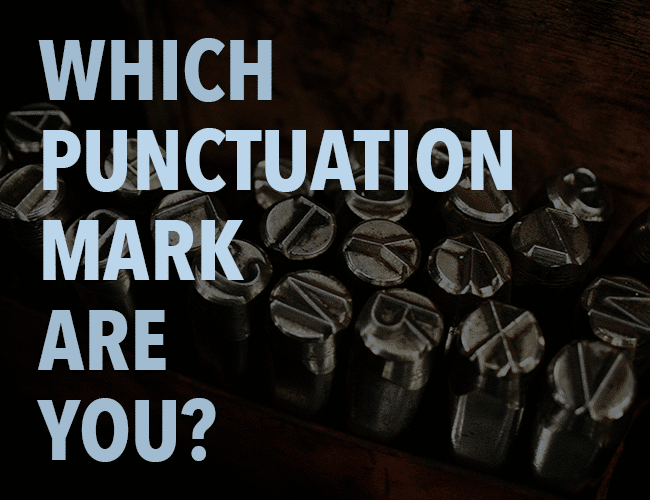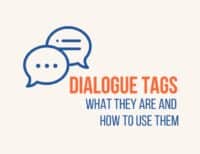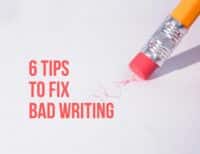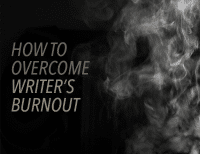Today on the blog, we’ve decided to have a little fun. We created a quiz that will determine which punctuation mark you are!

Punctuation marks can completely change a sentence, a paragraph, and an entire novel. We often have favorites that accompany our writing.
We decided to create a quiz to help you determine which punctuation mark you might be most like. Take the quiz to find out, and then practice using your punctation mark in the comments!
Which punctuation mark are you? Let us know what you get in the comments below!
PRACTICE
Take the quiz to discover which punctuation mark you are. Then, spend fifteen minutes using it! Write a piece that includes your punctuation mark as many times as possible. Let us know your punctuation mark and share your practice in the comments.
Happy punctuating!







The Interrobang. How odd – I never even knew such a punctuation mark existed! But it does suit me. Passionate, enthusiastic and a bit wacky. I guess I’m the spice in this curry!
The interrobang isn’t even an official punctuation mark! I envy you your unofficial status!
Frankly, I don’t care about that one. Maybe it’s for millennials to have fun with … I’m long past that stage … it’s hard enough to try to learn their slang, their shorthand “names” for everything, and their post-ironic phrasings.
I could use a little of that turmeric; and maybe then I’d change my mind 😉
Okay, who besides me had to Google “interrobang?!”
Me. I often use interrobangs but never knew there is a name for it. Who could have though it’s considered an official punctuation mark?!
I did! And I agree with others its name is slightly suggestive but feel that can only inspire its usage. I now aspire to become the Interrobang though I have never before been inspired to be anything less or more than I am. Though I must admit the ellipsis is very much a good fit as well as my motto is “stay tuned!”
Shouldn’t that be, “Stay tuned….”
Ellipsis…loved taking the test.
Another proud Ellipsis here!
The test is a great idea 😉
And another Ellipsis here. This was fun and I am feeling comfortable with the results.
I was sure I’d be a semi-colon; I guess em dash makes sense too—I often have trouble deciding which to use. 🙂
A comma? Really?!? I’m offended! 🙂
Take the test again and cheat. I too would treat that as an insult to my inherent weirdness!
Ha!
A commas is the most important punctuation mark, though. It’s hard to read without it. The whole flow of a book would be disturbed otherwise.
Great point! But that’s a lot of pressure. 🙂
Nope, gotta be the period, period. Otherwise we’d never get anybody to shut up.
Commas define sentences! It basically states whether you should eat Grandma or tell Grandma that you should eat.
Em dash. The blurb about this is: ‘The em dash is one of the most versatile punctuation marks. It’s often
used in places where a set of parentheses or a colon might otherwise be
used. Em dashes can show an abrupt change in thought or be used where a
full stop (period) is too strong and a comma too weak.
Like the em dash, you cause people to stop and take a second look, offering a fresh, unexpected perspective. Go turn some heads!’
I like the idea of being a real head-turner as my body was recently unfavourably compared with that of Alfred Hitchcock — and I really have to say that I doubt whether this is accurate for me — from the list of titles for my life story, none came anywhere near being close — and if one measure from such a small number of options — no matter how fascinating they may be — is off, then that greatly reduces the likelihood of reliability and accuracy — and besides, I also find em dashes can be distracting when overused, and can disjoint the flow of prose when changes of mind are portrayed — ooh what a pretty kitty-shaped cloud that was that just flew overhead — but is it really the case that my Alfred Hitchcockian booty could possibly turn heads or anything other than stomachs but precious little else — but I digress again and who thinks blue vein cheese should be outlawed?
I love the use of incompetently based surveys to determine the competence of those that use them. Almost every question posed in the survey directed the answer by limiting the possible variables and or the necessary context to prevent the answer from being random. Some questions in the survey simply said “pick”, but provide no basis or context for “picking.” Picking a mode of transportation without a know starting point and final destination leaves the “picker” picking to throw a dart to determine their answer – meaningless as it might be.
I did learn something – I think. Prior to this bit of trivia, and in a 50 year career of technical writing – I have never seen or heard of the interrobang – even in college writing courses in the period of its “invention”, or as it being a form of generally accepted punctuation. (I note that spellcheck doesn’t recognize interrobang or interabang either). Looking it up on Wikipedia – I see that it isn’t a generally used or accepted form of punctuation, but rather not much more than a historical artifact.
“Although most fonts do not include the interrobang, it has not disappeared: Lucida Grande, the default font for many UI elements of legacy versions of Apple’s OS X operating system, includes the interrobang, and Microsoft provides several versions of the interrobang character as part of the Wingdings 2 character set (on the right bracket and tilde keys on US keyboard layouts) available with Microsoft Office.[10] It was accepted into Unicode[11] and is present in several fonts, including Lucida Sans Unicode, Arial Unicode MS, and Calibri, the default font in the Office 2007, 2010 and 2013 suites.[12]
Like similar horoscope type “cold reads,” this “survey” will produce something that the reader can identify with. I have not “disappeared” though I am a “legacy” from former times, though I have never been accused of being a “wingding” (1 or 2), but who knows it might be fun.
Agree totally with everything you just wrote.
That said, I still had fun doing it.
So what is an interrabang? Or interrobang. I’m from the UK and have never heard of it. Is it a USA punctuation mark? Or am I just ignorant?
Again. (https://en.wikipedia.org/wiki/Interrobang).
I’d never heard of this word either before today.
You crack me up! I don’t think this quiz was designed to be taken seriously! Thankfully your reaction has led me to investigate the interrobang, and I think I am in love!? (Being cast as the em-dash beside it, has made me feel decidedly common)
I must start this assignment with a rather boring explanation. It turns out I am an ellipsis and I have to start my writing in disagreement with the definition given for the use of an ellipsis. As the editor of an academic professional journal, the APA Publications Manual is my bible for punctuation. According to the APA manual, the ellipsis is only used to indicate when words are left out of a quotation from another source. In keeping with this, the following writing uses the ellipsis only in this way.
Carl Jung said, “Only after I had familiarized myself with alchemy did I realize that the unconscious is a process … the psyche is transformed and developed by the relationship of the ego to the contents of the unconscious” (Jung, 1961/1965, p. 209). These words from Jung make me want to become more familiar with alchemy – or with the numinous relationship between the ego to the unconscious
I am thinking that in fiction writing, it could properly be used when writing dialog, as this is another form of quoting another source. As someone who often leaves out words when speaking, thinking others can somehow hear what goes unspoken, this makes sense.
OMG! Mind specifically blown!
A very good practice piece.
Em-dash was a pleasant surprise and totally me!
I’m an em dash. Sigh. Since I’m not completely sure how to use an em dash here goes–I’m an em dash and I’m not completely sure how to use one–even though I took English in high school and college–and I research them on a continual basis–my editor is constantly adding them and taking them out–which is frustrating to say the least–which is saying a lot–sigh!
I got ellipsis 🙂
An Oxford Comma? Hmm … I do have problems with lists, ‘and’, and ‘or’ – strangely enough.
I kinda knew I would be a em dash, versatile, flexible, and multifaceted — many things all at once!
We’re birds of a feather because I’m an em dash, too.
Me too. Quite pleased actually.
Ellipsis.. haha it really sounds like me.
I got the Oxford comma.
I wish I did not have to get this one. This is because I have been “wise, knowledgeable, and accurate” since a too-young age. Perhaps no younger than thirteen, but that had been young enough! The irony of this Oxford comma, is that I had been taught the use of this in a classicist Magazine Copyediting continuing education course when I had been just under 40 years old—wherein I was first-in-my-life introduced to what this blog post calls the Oxford comma (although they’d never called it that). You have to put a comma after every item, point, or element of any list in certain high-profile magazines or newsletters. I’d had no editing or writing experience (for pay) under my belt at that time; and I had been hoping to get a job in a communal service field using copyediting skills … that was never to come to pass. I much, much later got to use proofreading skills for pay.
That was such a big deal (but actually not)!
Not really having to use the Oxford comma (this was in a highly specialized physicians’ public relations magazine at first —which had gone nowhere). Later, and for the same for-benefit/for-profit company, it was for grant writers’ offerings and assorted marketing copy. Being in the field of biotechnology and not a magazine or newsletter for communal services, the Oxford comma had been the least of their worries …
I am a period, apparently. Seems boring somehow.
I am a period as well!
The ellipsis is a set of three dots that indicate the act of leaving out one or more words that are not necessary for a phrase to be understood.
Like the ellipsis, you like to pause, absorb the world around you, and reflect on what you see. Take the time to stop and smell the roses!
Yep, that’s me 🙂
Now I’m depressed because I’m an em-dash and I wanted to be a semicolon. Sigh.
I suggest you take the test again– and I hope you are a semicolon.
Don’t you like turning heads, Jani?
Thanks for this fun quiz. I love quizzes!
I’m an em dash. I am flattered and and happy to be one.
I’m an ellipsis.
The Ellipsis—that pretty much explains it. I use it a lot in my writing and texting.
Ellipsis. Figures…
Oxford Comma…Awesome! I believe in the oxford comma, too!
em dash, and proud of it.
I got the em dash. That makes sense — I use them far too often! I overuse parenthesis (almost) as often…and the ellipsis, too.
I got the em dash. That makes sense — I use them far too often! I overuse parenthesis (almost) as often…and ellipses, too.
Fun quiz! Here are my results: “The em dash is one of the most versatile punctuation marks. It’s often
used in places where a set of parentheses or a colon might otherwise be
used. Em dashes can show an abrupt change in thought or be used where a
full stop (period) is too strong and a comma too weak.
Like the em dash, you cause people to stop and take a second look, offering a fresh, unexpected perspective. Go turn some heads!”
I’m an em dash too!
I got the explanation point, which is kind of surprising. I’m not usually very spastic. Unless it’s while rushing to get the kids to bed. Then I’m crazy dad.
Did you mean “exclamation point” ?
And then just own “crazy dad”. That could easily be a major part of your personality and you don’t know it … 😉
Ha, yes. “exclamation point”. Curse you auto-correct (shakes fist) !
I took the quiz and and an or like an ellipsis. What I found interesting was the statement ‘I like to pause and absorb the world around me” and reflect on what I see.”
This is as accurate as a personality test. Em dash and proud.
Loved it! I am an em dash and I also use it a lot 🙂 Super fun.
The Oxford Comma, a scholarly air to the word ‘Oxford’, ‘Comma’ common?, seems common enough but integral in clarity and meaning to a sentence, without it, confusion ensues, accidents occurs, and even death visits. I’m the Oxford Comma.
I agree the Oxford comma is essential for clarity. It is one of my pet peeves that it is not consistently used.
I found out today, that the Associated Press Stylebook does not recognize the Oxford comma. I actually can’t find reference to it in the Chicago Manual of Style, either … and there was the Harbrace College Handbook: never had it …
Well, I don’t use it, as a rule. Its effect in blogging and e-publishing, is like adding an extra space at the end of a sentence—something I still do, by and large …. but then I’ve been around a long time …
Thanks, Tina. This may explain why the Oxford comma is so often missing. APA does require it and I feel it does add clarity, but then I’m dealing with academic journal articles in psychology, so perhaps I need to become more comfortable when it is missing in other writing.
I just thought of something else. The APA Style Manual does not call this the Oxford comma – it only specifies that a comma must be used before “and” or “or” in a series of three or more things. I only learned recently that it was called an Oxford comma.
Ah, the beloved em dash. It’s actually one of my favourite punctuation marks too! lol
Me = Semi-Colon = spot on!
A semicolon is stronger than a comma but weaker than a
period. It is used to separate independent clauses that are closely related.
Like the semicolon, you draw connections other people might not see. Keep
sharing your thoughts with the world!
Kellie,
Nice test! I get the em dash. “Like the em dash, you cause people to stop and take a second look, offering a fresh, unexpected perspective. Go turn some heads!”
In the beginning, I was pretty I would be a question mark, I ask too many questions all the time, even in my writing that it irks me sometimes.
Thanks for being a great sport. 🙂
Cheers,
Anh
Ellipsis!
Blank…Emotionless…That is what the world would have seen in his serenely contented face. Their eyes would have passed over his, discounting their flaming mixture of gold and brown, a dark bronze spark of life that guarded a bright soul…
She saw it though. Where others saw emptiness, she saw a peacefulness that could only be held by a man truly at ease with himself. Where some detected no emotion, she perceived a whirlwind of thoughts and feelings, coming and going in quick bursts through his mind. As he watched others, she watched him…
She strode across the room, passing him slowly, to catch his gaze… She heard the momentary break in his conversation, perceptible to no one else but her, because she knew what her own gaze had done to him in the single second that their eyes had connected…
He was alone in a room full of people. Not for long…
“Here is a lesson in creative writing. First rule: Do not use semicolons. They are transvestite hermaphrodites representing absolutely nothing. All they do is show you’ve been to college.”
― Kurt Vonnegut, A Man Without a Country
However I got the exclamation point!
The exclamation point is another punctuation mark used at the end of a sentence. In place of a period, the exclamation mark indicates excitement, passion, and emotion.
Like the exclamation point, you bring enthusiasm and strong emotion to everything you do. Shout your stories to the world!
An ellipsis–I walk slowly to soak up the world around me. Hmmm–well, sometimes. Okay, I will accept the challenge of being an ellipsis. Truthfully, the em dash is the punctuation that most appeals to me because, it allows adding a word or phrase in explanation, in contrast or to clairify–kind of as an afterthought. It’s more interesting than the comma.
But, in writing my memoir, i often find myself using the ellipsis to quote or paraphrase a letter, article, part of a book that I’m including in a chapter. So, call me an elilpsis.
I got ellipsis… wait, I wonder why? I’m usually rushing, but maybe… maybe it knows more about me than I do. 😛 I do use a lot of them in my writing, so maybe that counts, too. If I were to go through my current manuscript, I’d see…hold on… 46 of them. And the book’s nowhere near done. (I should look through the ones I published. Wonder how many are in there?)
Usually I would use them in my own speech/writing because thoughts trail off into other thoughts. So maybe it’s more of a scatterbrain thing than a “stop and smell the roses” thing!
Maybe it got me right after all. 🙂
“Whatsoever ye do, do it heartily, as to the Lord and not unto men.”
The oxford comma! What i cant believe it :p
wise, knowledgeable, and accurate..!!
I’m glad that some of us are pleased with the punctuation that defines us.
I use the Oxford comma. Couldn’t do without it.
Thanks 🙂
I totally love the “Ellipsis!” I use it a lot! This is my punctuation personality. That is awesome…..
Ellipsis
I am a semi colon. Like
the semicolon, you draw connections other people might not see. Keep sharing
your thoughts with the world! And I delight in sharing my perceived connections to the world.
Me and a friend of mine both took this quiz (and actually both ended up with an em dash!), and we enjoyed it. Thank you, Kellie!
The em dash.
em-dash.
A semi-colon, interesting.